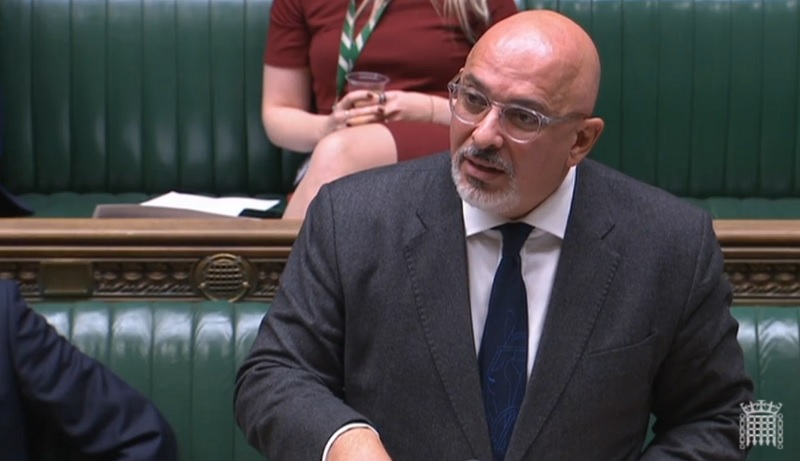MPs have called for more flexibilities in local skills plans and for even more time before some level 3 qualifications are defunded.
The Skills and Post-16 Education Bill received its second reading in the House of Commons on Monday; a part of the process where MPs get to have their say on the broad principles behind the bill.
Unusually, this bill started its parliamentary journey towards becoming law in the House of Lords. This means that by the time MPs got to see it, it had already been significantly amended by the upper house. Unlike in the House of Commons, the Conservatives do not enjoy a majority in the Lords, so it has been widely speculated that many of the amendments that passed in the Lords would be unlikely to make their way in the final bill.
In total, 44 MPs had their say from both government and opposition benches in a debate lasting nearly three hours.
MPs push Zahawi with extra requests for the bill
In introducing the bill, the education secretary, Nadhim Zahawi, announced the one-year reprieve to the defunding of some BTECs and level 3 qualifications, which was welcomed by MPs on all sides.

Several MPs, including Labour’s shadow education secretary, Kate Green, urged Zahawi to support the Lords’ amendment for a four-year moratorium on level 3 defunding, rather than the one year announced at the debate.
In her speech from the opposition benches, Green said the one-year reprieve was still “a very short time for people to come to terms with the new T level offer.”
Zahawi also used his introductory speech to announce that current T level exit requirements to include GCSE English and maths would be scrapped.
Despite receiving a mixed reception from sector leaders, this policy change was welcomed by Mansfield MP Ben Bradley, who said “we should not be preventing people who want to do a T level in early-years education from accessing it because they were not very good at trigonometry”.
The Commons education committee chair, Robert Halfon, came to the debate with a list of requests for the bill, including a “skills tax credit to revitalise employer-led training” and directing some of the £800 million currently spent on widening access to universities towards supporting students from disadvantaged backgrounds to do apprenticeships.
BTECs, local skills plans and devolution also debated
The “BTEC issue” was by far the most commented-upon topic throughout the debate.
However, the design of local skills improvement plans also featured heavily.
Zahawi committed to a government-backed amendment that would place the role of mayoral combined authorities in the development of local skills improvement plans on a statutory footing.
A similar amendment was proposed in the House of Lords and received cross-party support.
Tom Hunt, Conservative MP for Ipswich, wished to see this go further, saying in the chamber that there “should not be an arbitrary distinction between an area that happens to have a mayor and combined authority and an area that does not. I do not see why Suffolk should not benefit from devolved adult education in the same way as Cambridgeshire and Peterborough, which happen to have a mayor.”
There was little insight into any further government amendment, or which specific amendments from the House of Lords the government wants to change or delete.
Toby Perkins, the shadow skills minister, said: “The government have indicated that they will be seeking to overturn Lord Baker’s amendment on careers guidance, which would have allowed a range of educational and training providers access to every student in years 8 to 13.”
Perkins, alongside several other MPs including Conservative Peter Aldous and Liberal Democrat Munira Wilson, also argued that the government should support a Lords amendment that would allow universal credit claimants more access to training without losing benefits.
The bill “leaves out apprenticeships and is silent on the role of independent training providers”, Perkins also said in his remarks.
MPs will next debate bill at the end of this month
In summing up, skills minister Alex Burghart defended the government’s proposals to create designated employer representative bodies, but was careful not to over-define what they would look like. Throughout the debate, several MPs had questioned the suitability of chambers of commerce alone to fulfil that responsibility to lead on local skills improvement plans.
A committee of MPs will now be formed to debate each clause of the bill in detail and make decisions on amendments from MPs. This process is expected to begin at the end of this month.

















Your thoughts